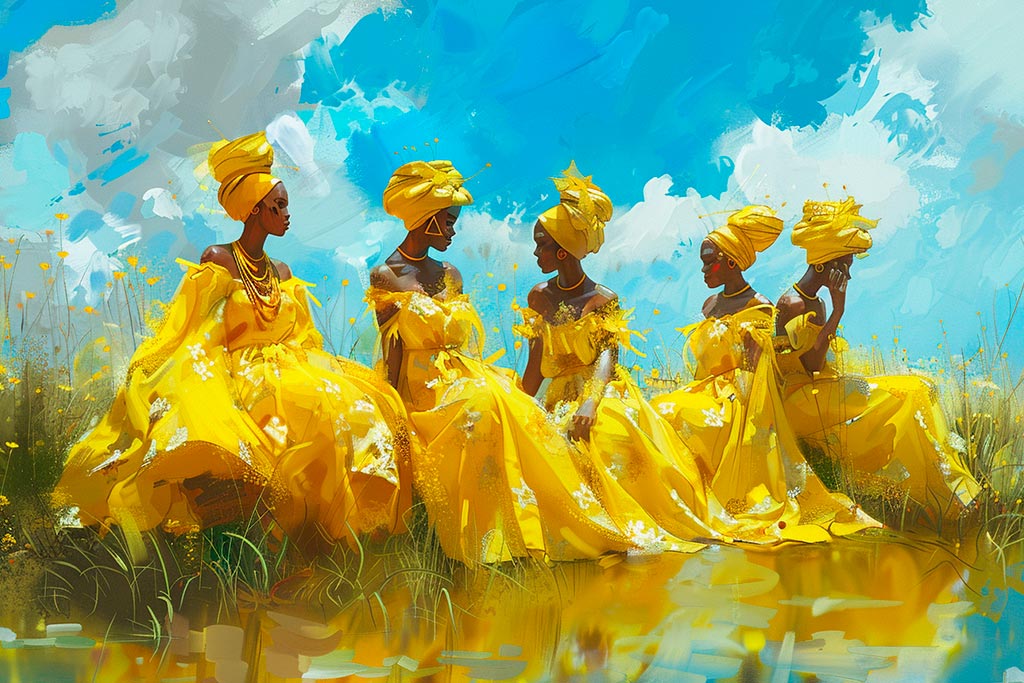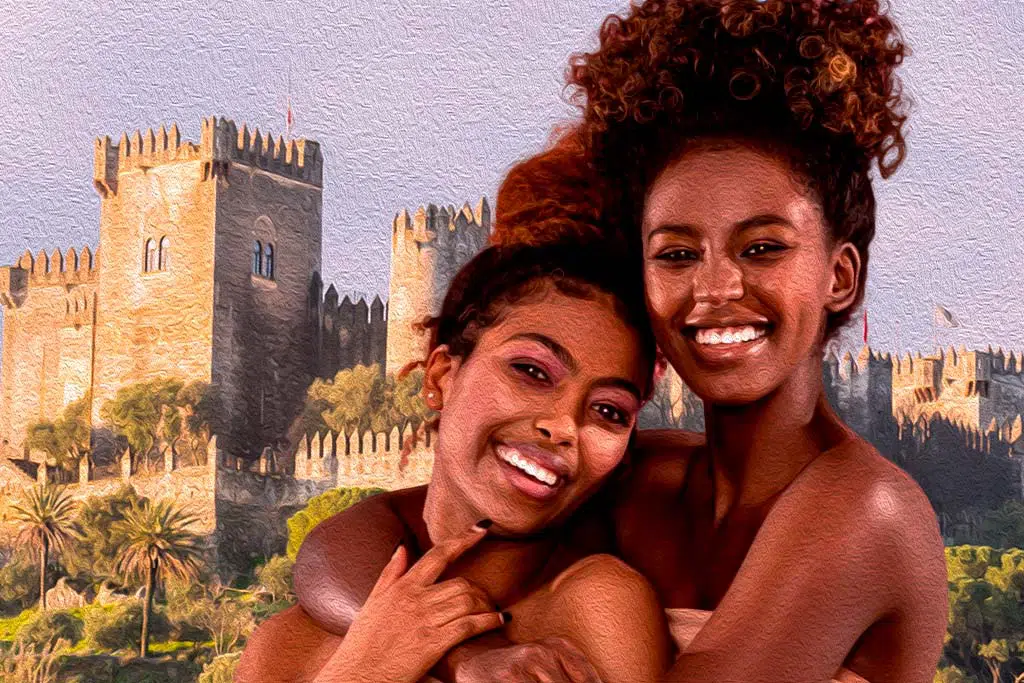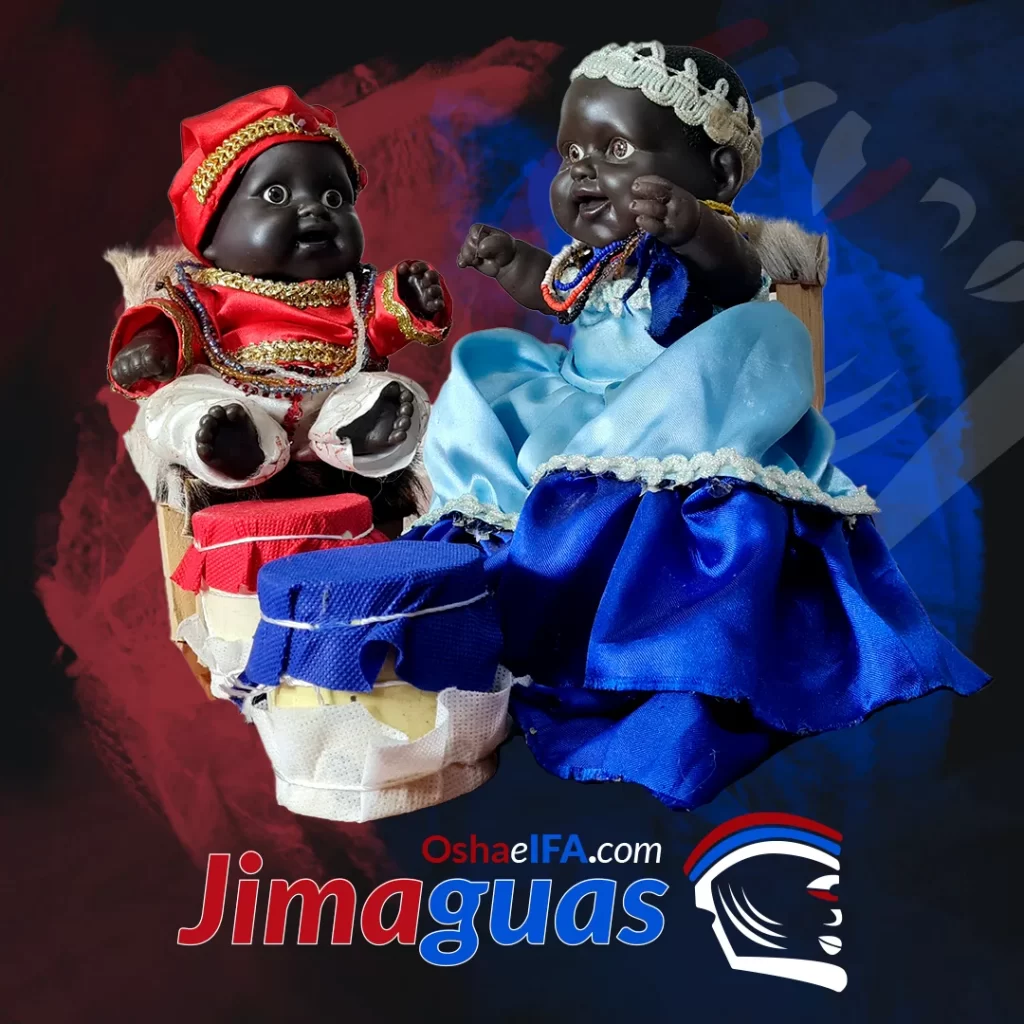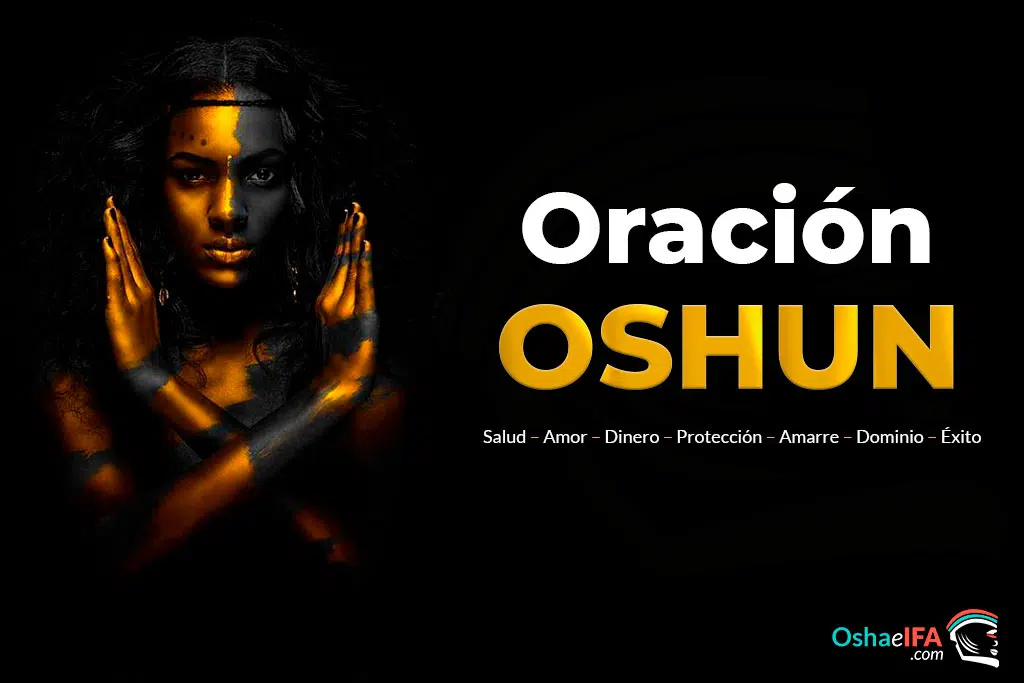How to attend to Oshun? Offerings and Adimuses
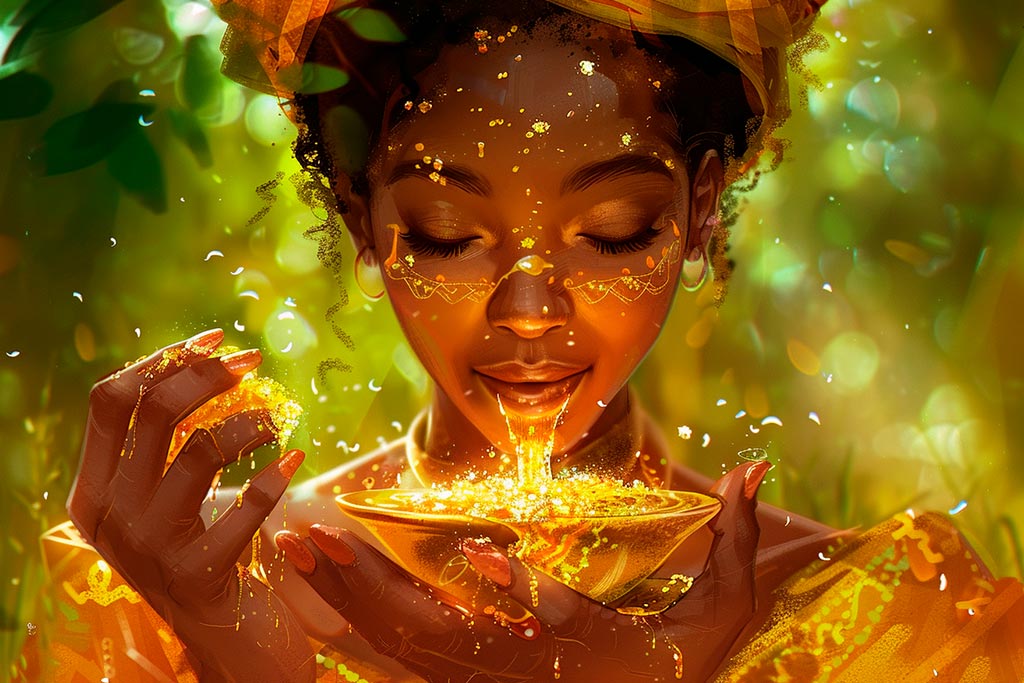
The adimuses, offerings and eboses in the Yoruba religion, have a fundamental role within these beliefs, constituting the basis for the veneration and care of the deities. When it comes to Oshun, the goddess of love, beauty and sweet waters, her attention takes on special relevance. In this article, we will explore her preferences and how to care for Oshun in an appropriate and timely manner to satisfy her, achieve her favors, obtain her blessings, or thank her for her help within the rule of Osha and Ifa (Afro-Cuban Santeria).
Among the most popular adimuses or offerings to entertain Oshun It is placed: gofio sticks with honey and candy; oranges, peaches and peaches with cinnamon, endive, chard, chayote, tamale, yellow rice, corn flour and beers. Ekó, ekrú and olelé with saffron.
He likes all kinds of sweets, including: coconut joys, oranges in syrup, plums, pineapples, peaches and peaches, but his favorites are drunken paneletas, which are cakes or small flour-based cakes. of wheat, milk, raisins and butter, which are generally made in the shape of small cones, sprinkled with sugar, canistel in syrup, rum and honey.
ochun He is a lover of Ochinchin (liturgical food prepared with eggs, shrimp, chard or lettuce). Fish such as: mullet, eels, mapos, dajaos, catibos, guajacones, biajacas, guabinas, river shrimp and prawns are cooked. He likes all smoked river fish and shellfish.
Their dishes are placed as a garnish: almond trees, watercress, canistel, water flower, spinach, parsley, sweet potato, pumpkin, cold cornbread, bean razupo, crushed yam, guinea corn beer, and corn pudding.
However, The most significant food in the worship of Oshun within Santeria is honey. This is because honey has a deep symbolic meaning thanks to its natural properties and the spiritual powers attributed to it. First of all, it is a representation of sweetness and love, two characteristic aspects of Oshun. Both are a reference to the sweetness of life and the ability to attract pleasant feelings.
Secondly, honey has been associated in various cultures with fertility and prosperity, being a symbol of abundance and growth, so its energetic vibration fits perfectly with Oshun. Furthermore, being a natural food that comes from bees, it represents the connection with nature and Oshun's ability to positively influence people's lives.
«As a drink element, apart from honey, there are: champagne, which he loves very much, you can put it in a glass at important moments, you can also leave a complete, sealed bottle next to him ( Be careful! It's only for her even though it's sealed); a drink made in Cuba called sheketé. He also likes beer, but it should not be made from corn (be careful).
(Shangó Omo Asa. The power of Orisha. 2021, p. 46).
It may interest you: Prayer to Oshun for Love
Another food that Oshun loves is pumpkin (ahuyama), symbol of prosperity and the secrets that surround this powerful deity. It is well known that she likes jewelry, fans, shells, small boats, mirrors, sea corals, beautiful fabrics, handkerchiefs, embroidered cloths and all the objects typical of a woman's toilet.
Oshun's favorite flowers are: sunflower, macaws and buttercup. He loves perfumes. Her favorite aromas are: beriberi and sandalwood. Their offerings can be placed at the foot of its foundation or taken directly to the river bank. In this regard, Mari Silva (2021), in her book Orishas: The definitive guide to the African orisha deities and their presence in Yoruba, Santería, Voodoo and Hudú, with an explanation of dilogún divination, notes that:
«Oshun only accepts ritual foods placed on white or yellow plates. When he does not accept a sacrifice, it remains in the same place. But when it is accepted, the tide drags the sacrifice into the water. (p. 69).
His favorite animal is the peacock; It also likes small fish, river fish, and shrimp. But actually what Oshun eats, or the animals that are sacrificed to him are: goats (castrated), chickens, pigeons, quail, guineas, jicotea, pheasant, chicken, canary, owl, deer (female), alligator, goose, and various fish.
You can read: What are Oshun's children like? Characteristics and Personality
Taboos and prohibitions of Oshun: What doesn't he like?
When worshiping Oshun, the Orisha of love and sweet waters, it is crucial to know not only what she appreciates, but also what she rejects or dislikes. Within her prohibitions or ewés, elements stand out that should never be offered to her. These include slugs and snails, whether terrestrial, river or marine. He hates melon, guinea corn, duck, palm oil and fried corn. It is essential to know that during their menstruation, women should not interact with their sacred objects, nor should their children consume pumpkins, a taboo food for them.
Oshun advocates respect and protection for women. Acts of disrespect or violence against them, especially if they are her devotees, unleash his anger. This aspect underlines her role as a defender of
References
- Cabrera, Lydia. (1974). Yemayá and Ochún (Kariocha, Iyalorichas and Olorichas). Universal Editions.
- De Sousa Hernandez, Adrian. (2005). The Orishas in Africa. An approach to our identity. Editorial of Social Sciences.
- Gutierrez, Mariela A. (2004). Lydia Cabrera and hers Yemayá y Ochún, an incomparable fluvial compendium of Afro-Cuban mythology. Inti: Hispanic Literature Magazine: No. 59, Article 19.
- Ifa Orilana Aworeni Odumola Sowunmi. (2009). The nature of the Orisas. Rosebud Editions.
- Morgaine Raven. (2021). Orisha, Goddess, and Queen of the Sea. Weiser Books.
- Ócha'ni Lele. (2012). Sacrificial Ceremonies of Santería: A Complete Guide to the Rituals and Practices. Destiny Books Publisher.
- Shango Omo Asa. (2021). Orisha's power. Independent publication.
- Silva, Marie. (2021). Orishas: The Definitive Guide to the African Orisha Deities and Their Presence in Yoruba, Santeria, Voodoo, and Hoodoo, with an Explanation of Dilogun Divination.
